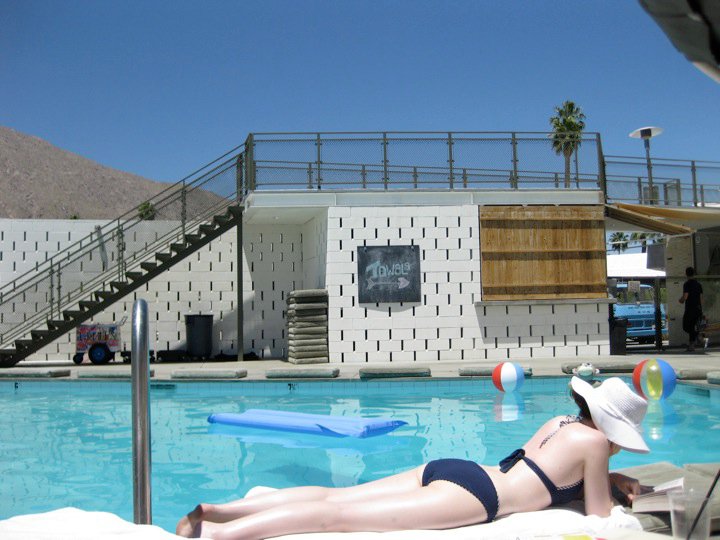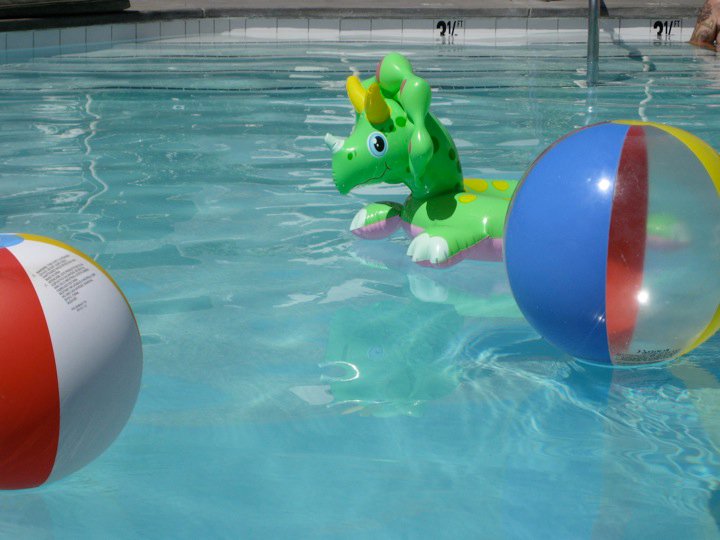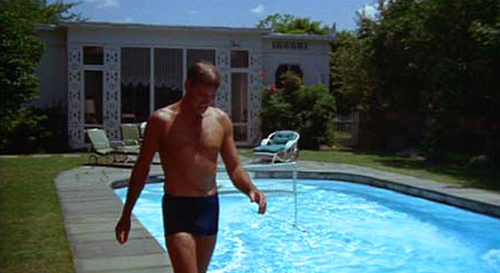 FILM
FILM In Which Jealousy Among Writers Is A New Phenomenon
 Thursday, August 26, 2010 at 10:10AM
Thursday, August 26, 2010 at 10:10AM 
We Have To Get Out Of This Country
by ELISABETH DONNELLY
dir. Joachim Trier
105 min.
The Norwegian film Reprise, the debut feature from Joachim Trier (distantly related to Lars von Trier, also a former skateboarding champion of Norway), is one of the rare films that nails the uncertainty and bravado of being twentysomething, struggling and flailing on the road to wisdom. Its greater achievement, however, may be that it is the rare wonderful film about writers and writing that isn't hampered by the conventions of a completely uncinematic alcohol-soaked biopic.
Nearly leaping off-screen with Trier’s jagged, French New Wave fracture of a narrative, Reprise follows two twentysomething writers, Phillip (Anders Danielsen Lie) and Erik (Espen Klouman-Høiner), in the flush of youth and ambition as they mail off their first manuscripts in a big red mailbox. "Do I really want to expose the world to this?" Erik, the blonder and cuter of the two, muses. Trier jumps into a fantasy, introducing the effectively literary Jules et Jim-esque detached narrator, where everything goes right for the writers – their books are published in quick succession, they become beloved cult writers with impeccable critical credentials, and end up inspiring revolution in Sierra Leone.

But that’s not the way it happened. Not at all. Erik is quickly rejected, and Phillip is published in the fall. And even though Phillip achieves the dream, he’s a sad young literary man who's written a critically acclaimed piece of work, it does him no good. Phillip has a mental breakdown.
We really get to know Phillip after the crackup. After the broken glass, the suicide attempt, a bloody shirt, and a grin that signified the sinister slip of madness. His psychosis is never quite explained, left empty and scary, a weighty burden. Yet it resonates because there’s something truly unsettling about seeing a beautiful youth – a writer, for god’s sake – cross the line from sanity to something darker.

Freed from the mental institution, Phillip reunites with his ex-girlfriend, the beautiful gamine Kari. They started innocently; he made her laugh until she cried, teased her about looking goofy, making her laugh all the harder. But despite their initial joy, lust, and innocence, their relationship was integral in tearing Phillip apart, and pushing him over the edge. To watch them attempt a reprise is heartbreaking. "Remember when I tricked you into falling in love, in Paris?" he asks, and he takes her there a second time, trying to repeat every experience, making sure that he takes the same risqué and sexy picture of her in the same public garden to the point of humiliation.
Over the course of the film, the greatest insight to the workings of Phillip’s mind comes from the narration, when it’s revealed that that every time he counts to ten, he is trying to change his life. At ten, he hits on Kari for the first time when they meet at a punk club, he takes crazy, suicidal risks like driving his bike into a car, standing on train tracks looking at an oncoming train - and this dancing on the razor's edge is all for the sake of a temporary reprieve. Phillip can’t escape his brain chemistry, the cruelest fate of all.
Phillip has the flashier role, and by the time he has come and gone as the authorial flavor of the week, Erik – who has mostly been worrying and caring for his friend - finally gets a deal for his soggy-sounding manuscript, called "Prosopopoeia" (a Greek term where a writer is speaking in another voice, ie, "if so and so was alive today, he'd be..."). On the book’s release, he makes a fool of himself on TV, air-quoting away his nerves, describing his work as "searching for the absolute language, a language that can grasp all the world’s nuances, and that is a madness of sorts." His girlfriend breaks up with him because he never "sees" her and in a neat trick, it's true - she's not allowed to be a character in the film, not allowed to have a voice. She's simply a silhouette.

But Erik has something on Phillip - he has his sanity. And his ability to worry and care for Phillip, who he loves and resents in equal measure. Their literary rivalry and ambitions cast a shadow over the film; they’re the elephant in the room. The two are united in their staggering literary ambitions. in their idolization of Norwegian writer Sten Egil Dahl, in their shared history and shared visions of a bright future. But talent, luck, and timing do their worst to separate the two. It’s a common affliction for literary types – you start off young and full of ambition, and then all of a sudden you’re trying to make rent writing about other people’s work while your best friend is on book number five. You have to be dead not to have flare-ups of jealousy, wanting what the other writer has; and Trier gets those feelings, however ugly and self-absorbed, on screen.

And while Phillip and Erik are grappling with issues of life, jealousy, and how, exactly, to define your goals, their group of tight-knit friends offer goofy advice on girls and the endless balm of punk rock, reflecting the artistic ideals of the young aesthete. The most basic characters in the film, they’re the ones who provide “the poetic details of boy culture,” to quote Trier in a New York Times interview, who goes on to hope that the film casts a spell that could be like the boy version of Sofia Coppola’s The Virgin Suicides. And the Diner/Breaking Away lineage of the friends you have in your youth, this gang of guys, has a wonderful payoff - a glorious scene where the guys crash a party and liven it up by hijacking the iPod station with Le Tigre’s “Deceptacon,” and boom, instant dance party.
Then, all of a sudden, the film turns, hard, and it's up to the audience to interpret what, exactly, it means. It could be straightforward storytelling, or a brilliant deconstruction, like Werner Herzog's Bad Lieutenant: Port of Call New Orleans. But Trier sets up two sides - the literary genius who can't write, the diligent writer who maybe can - and asks the audience to decide where Phillip and Erik go, and whether it’s a tragedy or triumph.
 joachim trier
joachim trier
Trier takes familiar tropes of youthful idealism and ambition, but he manages to spin the story in a vital new way. Credit goes to the exuberance of his fast-cutting French New Wave technique, which playfully jumps around in time. The cast is full of fresh-faced non-actors - Anders Danielsen Lie, who has the difficult role of Phillip, is also a doctor and a musician - serving a perfectly written script, infused with ideas and not one wasted word, where twentysomethings are allowed to speak openly and honestly and without inarticulate likes.

Reprise has the sort of Great Film, reaching-for-the-bleachers aim that puts the nearest American equivalent (mumblecore, with its likes, uhs, improv, and endless roles for Justin Rice? Reality Bites? Michael Chabon book adaptations?) to shame. You leave the film with a greater understanding of what it means to be to be young and to be a writer. Bittersweet and hopeful, Reprise suggests that we outrun the past, the present, and the minutiae of our lives, constantly carving them into something solid and real. And maybe, when it comes down to it, that's the real art that we create - the utter, unknown art of youth.
Elisabeth Donnelly is a contributor to This Recording. She tumbls here and twitters here. You can find her previous work on This Recording here.

"Lifeline (Barefeet version)" - Citizen Cope (mp3)
"A Father's Son" - Citizen Cope (mp3)
"Keep Askin' (acoustic)" - Citizen Cope (mp3)

 elisabeth donnelly,
elisabeth donnelly,  joachim trier,
joachim trier,  reprise
reprise 

















































